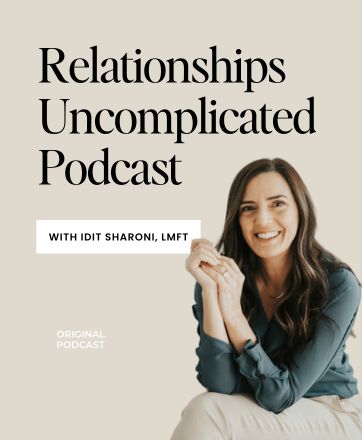You’ve been asking yourself the hard question: can you ever fully recover from an affair? You’ve tried couples therapy. Maybe you’ve read affair recovery books, attended workshops, or worked with a life coach. Yet here you are, months or even years later, still carrying the same pain and uncertainty. The affair recovery failed and the healing you desperately wanted feels as distant as ever.

If you’re wondering whether recovery is even possible, you’re not alone. Many couples who find our Affair Recovery Program have already tried other things without success. The question isn’t whether healing can happen—it’s understanding why previous attempts failed and what needs to be different this time.
The truth is that affair recovery fails for specific, identifiable reasons. When you understand these patterns, you can finally move toward real healing.
Does Traditional Therapy Work for Affair Recovery?
Traditional couples therapy often fails after an affair. Unfortunately, most therapists lack specialized training in affair recovery. General relationship skills aren’t enough when trust has been shattered.
Most therapists mean well, but they treat affair recovery like any other relationship issue. They focus on communication skills or weekly check-ins about your feelings. While these approaches might help with everyday relationship challenges, they don’t address the unique trauma and complex emotions that follow betrayal.
Affair recovery requires specialized knowledge. You need someone who understands the specific stages of healing after infidelity if you want to stay together after infidelity. You need structure, not just conversation. Many couples spend months in traditional therapy. However much of that time is talking in circles, without ever addressing the root causes that made the affair possible in the first place.
We’ve seen couples who worked with a couples therapist for over a year, only to feel more frustrated and hopeless than when they started. The therapy became another source of stress instead of a path toward healing.
Why Do Couples Try to Heal Individually Instead of Together?
Many couples mistakenly believe they need to work on themselves separately before they can work on their relationship. This approach almost always fails. The truth is that affairs are relational problems that require relational solutions.
When couples work individually, they often spend months processing their emotions separately. The hurt partner might work on “getting over” the betrayal. The unfaithful partner might focus on understanding why they cheated. But healing happens in relationships, not in isolation.
Affairs damage the connection between two people. You can’t repair that connection by working apart from each other. Individual therapy might help you understand your feelings, but it won’t rebuild trust or restore intimacy. Those things happen when both partners commit to working together.

When Does Individual Affair Recovery Work Make Sense?
There are specific situations where individual counseling can support the recovery process. If the hurt partner is experiencing severe betrayal trauma, EMDR therapy might be helpful. Of, if one partner has an active addiction that contributed to the affair, they may need specialized addiction treatment alongside the couple’s work.
However, these individual interventions work best when they happen alongside relational healing, not instead of it. The goal is always to return to working together as a team. Individual therapy should support your joint recovery, not replace it.
This is why our program requires both partners to participate together. There’s no individual part of this process. You come as a team because the problem happened in your relationship, and the solution must happen there too.
What Happens When Recovery Lacks Structure?
Without a clear roadmap, couples often get stuck in endless cycles of talking, arguing, or trying to “just move on.” This lack of structure keeps them trapped in the same painful patterns month after month.
Many couples try to heal by having long conversations about the affair. They rehash details, express hurt feelings, or make promises about the future. In the moment, these discussions feel important. Yet, they rarely lead to lasting change without proper structure and guidance.
Some couples attempt to skip the hard work entirely. They try to return to normal as quickly as possible, hoping that time alone will heal the wounds. Others get lost in blame and anger, unable to move forward because they don’t have a clear path. We’ve worked with couples from London to Los Angeles, from Canada to Australia who spent months trying different approaches before finding the structured guidance they needed.
Recovery requires more than good intentions. You need to know where you are in the process and what comes next. You need specific tools and strategies for each stage of healing. Without this structure, couples often feel like they’re working hard but making no progress and the affair recovery fails.
Our structured approach means you always know what you’ve accomplished and what’s waiting for you. This isn’t open-ended talk therapy. It’s a proven roadmap that guides you step by step toward healing.
Why Do Couples Give Up Before Recovery Is Complete?
Affair recovery is hard work. Many couples give up right before breakthrough moments. They lose hope because the process feels too difficult. Others give up because they don’t see immediate results.

Recovery doesn’t happen in a straight line. There are difficult days. There are setbacks. Sometimes giving up feels easier than continuing. Without proper support, many couples think these challenges mean healing isn’t possible. Without realistic expectations, they lose hope.
Some couples give up because their previous attempts felt overwhelming. The process wasn’t clear. They didn’t see progress. So they assumed their marriage couldn’t be saved. Others received harmful advice from friends or family. These people suggested that walking away was the only option.
Recovery takes time and commitment from both partners. It’s not about perfection nor about having the right guidance. It’s about refusing to give up on each other. Many couples felt hopeless during difficult moments. Later, they describe their marriage as stronger than before the affair.
We understand that you might feel exhausted from previous failed attempts. You might worry that trying again will lead to more disappointment. These fears make sense. But they don’t have to determine your future.
What Percent of Couples Stay Together After Infidelity?
Many couples want to know their chances of success before committing to recovery work. Statistics vary, but research suggests that 60-75% of couples stay together after infidelity. This happens when they receive proper support and guidance.
According to the American Association for Marriage and Family Therapy, many marriages do survive infidelity with the right approach. However, these numbers don’t tell the whole story. What matters more is whether couples have the right tools and approach for healing.
Couples who work with specialized affair recovery programs see much higher success rates. This is compared to those who try to heal on their own or with traditional therapy.
The couples who succeed share common characteristics. They’re both committed to the process, even when it’s difficult. They work together as a team. They don’t try to heal individually. Most importantly, they have structured guidance from experts. These experts understand the specific challenges of affair recovery.
The bottom line? Your relationship success doesn’t depend on statistics. It depends on your commitment to each other. It depends on your willingness to follow a proven path toward healing.
Ready to Stop the Cycle of Failed Recovery?
You don’t have to stay stuck in the pain you’re feeling right now. If you’re tired of affair recovery failed attempts and ready for something that actually works, we’re here to help.
The first step is simple: schedule a consultation on our website. You’ll answer a few basic questions about your relationship to help make that consultation as helpful and individualized as possible. From there, you’ll meet with a member of our team who will gently walk you through our process.
This isn’t like what you’ve already tried. We won’t leave you sitting in endless conversations that go nowhere. Instead, you’ll see from the very beginning that there’s a structure, a roadmap, and a clear way forward. You’ll work together as a team with experts who specialize specifically in helping couples heal after affairs.
If you still love your partner—even if you’re not sure what the future holds—this is your chance to try something different. Many couples tell us they felt real hope for the first time in months simply by taking that first step. You don’t have to know all the answers right now. You just need to be willing to start.
A Different Path Forward
Recovery fails when couples don’t have the right structure, expertise, and support. Stay together after infidelity fails when partners try to heal alone instead of together. It fails when therapists treat affairs like general relationship problems. Affair recovery is a very specialized field. And it requires expert, specialized intervention.

Yes, affair recover IS possible.
Healing happens when couples have a clear roadmap, expert guidance, and the commitment to work together as a team. It succeeds when both partners understand that healing is possible but requires the right approach.
If previous attempts at recovery have left you feeling hopeless, know that failed therapy doesn’t mean your marriage can’t be saved. It means you needed something different. You need a healing path that was specifically designed for couples healing after affairs.
Does Affair Recovery Work?
Yes, affair recovery works when couples have the right structure, expertise, and support. It works when partners commit to healing together instead of trying to work individually. Most importantly, it works when couples follow a proven roadmap designed specifically for the aftermath of an affair.
Recovery doesn’t work when couples try the same failed approaches over and over. It doesn’t work when therapists treat affairs like general relationship problems. It doesn’t work when couples give up before the healing process is complete.
But when couples have specialized guidance and commit to working together as a team, recovery not only works—it often creates stronger marriages than existed before the affair. This isn’t about returning to your old relationship. It’s about building something better, more secure, and more connected than what you had before.
The couples who succeed share something important: they refused to let previous failures define their future. They recognized that failed attempts didn’t mean their marriage couldn’t be saved. It meant they needed the right approach.
About the Author
Idit Sharoni, LMFT, and her team are internationally recognized relationship experts dedicated to helping couples heal after infidelity. For years, they have supported couples across the United States, Canada, the UK, Australia, Dubai, and beyond.
What makes their work different is a unique, structured approach designed specifically for the aftermath of an affair. Unlike traditional therapy that often drifts into venting sessions or leaves couples feeling stuck, their program offers a clear roadmap. At every stage, you’ll know where you are in the process and what comes next.
Idit and her team believe in relational solutions to relational problems. That’s why they work only with couples together—never separately. They know that healing from infidelity requires both partners, side by side, taking part in the process.
Over the years, couples who had almost given up hope—many of whom tried therapy, coaching, or self-help without success—have found new connection and trust through this program. With compassion, professionalism, and an unwavering belief that good marriages can recover from even the deepest wounds, Idit Sharoni and her team have become a trusted guide for couples around the world.

Why Does Affair Recovery Fail? You’ve been asking yourself the hard question: can you ever fully recover from an affair? You’ve tried couples therapy. Maybe you’ve read books, attended workshops, or worked with a life coach. Yet here you are, months or even years later, still carrying the same pain and uncertainty. The healing you desperately wanted feels as distant as ever.
Get Expert Affair Recovery Support
If you’re wondering whether recovery is even possible, you’re not alone. Many couples who find our Affair Recovery Program have already tried multiple approaches without success. The question isn’t whether healing can happen—it’s understanding why previous attempts failed and what needs to be different this time.
The truth is that affair recovery fails for specific, identifiable reasons. When you understand these patterns, you can finally move toward real healing.
Comments +